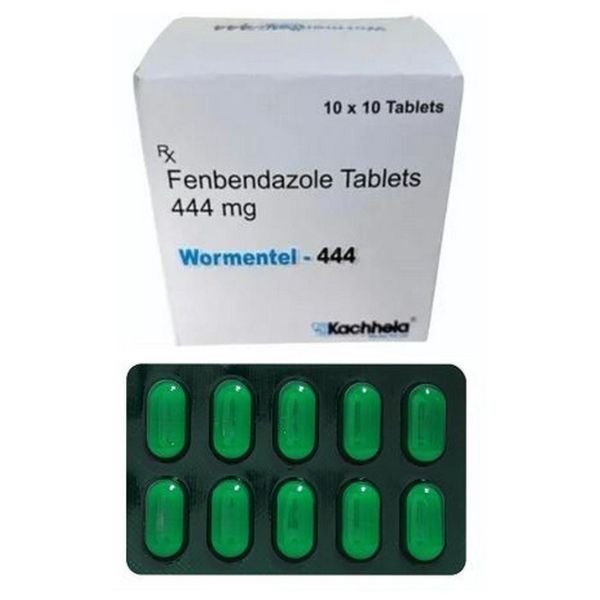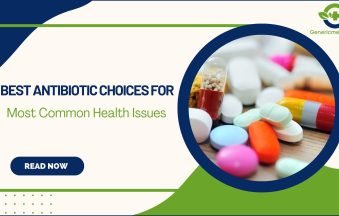Deworming and Gut Health: How to Restore Digestive Balance
Are you feeling bloated, tired, or experiencing unexplained digestive issues? 🤔 You might be surprised to learn that these symptoms could be linked to unwelcome guests in your gut – parasites. These tiny invaders can wreak havoc on your digestive system, compromising your overall health and well-being.
But don’t worry, there’s hope! 🌟 Deworming and restoring gut health can be your ticket to renewed vitality and digestive comfort. By understanding the impact of parasites on your body and learning how to effectively combat them, you can take control of your gut health and experience a remarkable transformation in your overall wellness.
In this blog post, we’ll dive deep into the world of deworming and gut health restoration. From understanding the deworming process to exploring natural remedies and long-term maintenance strategies, we’ll equip you with the knowledge you need to achieve optimal digestive balance. Get ready to embark on a journey towards a healthier, happier gut! 🌿💪
Understanding Parasites and Their Impact on Gut Health
Common types of intestinal parasites
Intestinal parasites come in various forms, each with its own set of characteristics and potential health impacts. Some of the most common types include:
- Protozoa:
- Giardia lamblia
- Cryptosporidium
- Entamoeba histolytica
- Helminths (worms):
- Roundworms (Ascaris lumbricoides)
- Tapeworms (Taenia spp.)
- Hookworms (Ancylostoma duodenale)
- Pinworms (Enterobius vermicularis)
How parasites affect digestive balance
Parasites can significantly disrupt the delicate balance of our digestive system in several ways:
- Nutrient depletion: They compete for essential nutrients, leading to malnutrition.
- Intestinal inflammation: Their presence can cause irritation and inflammation of the gut lining.
- Altered gut microbiome: Parasites can disrupt the balance of beneficial bacteria in the gut.
- Impaired digestion: Some parasites interfere with the production of digestive enzymes.
Signs and symptoms of parasite infection
Recognizing the signs of a parasite infection is crucial for early intervention. Common symptoms include:
- Persistent digestive issues (diarrhea, constipation, bloating)
- Unexplained weight loss
- Fatigue and weakness
- Skin problems (rashes, itching)
- Muscle and joint pain
- Sleep disturbances
Long-term consequences of untreated infections
If left unchecked, parasite infections can lead to serious health complications:
- Chronic malnutrition and associated health problems
- Weakened immune system, increasing susceptibility to other infections
- Anemia due to blood loss or nutrient deficiencies
- Intestinal obstruction in severe cases of worm infestation
- Potential spread to other organs, causing systemic issues
Understanding these aspects of parasitic infections highlights the importance of proper diagnosis and treatment to restore and maintain optimal gut health.
The Deworming Process: What to Expect
Different deworming methods and medications
When it comes to deworming, there are several methods and medications available. The choice depends on the type of parasite and individual health factors. Common oral medications include:
- Albendazole: Effective against various worms
- Mebendazole: Targets roundworms and hookworms
- Ivermectin: Used for strongyloidiasis and onchocerciasis
Some treatments may require a single dose, while others need multiple doses over several days. In severe cases, intravenous medications might be necessary.
Preparing for a deworming treatment
Before starting a deworming regimen, it’s crucial to:
- Consult with a healthcare professional
- Complete any required testing
- Inform your doctor about any medications or supplements you’re taking
- Follow pre-treatment dietary guidelines, if any
Potential side effects and how to manage them
Deworming medications can cause side effects, which are usually mild and temporary. Common side effects include:
- Nausea and vomiting
- Diarrhea
- Abdominal pain
- Dizziness
To manage these, stay hydrated, rest, and follow your doctor’s advice. In rare cases of severe reactions, seek immediate medical attention.
Duration and frequency of deworming treatments
The duration of deworming treatment varies depending on the parasite and chosen medication. Some treatments may be completed in a single day, while others might last several days or weeks. Follow-up treatments are often necessary to ensure complete eradication of parasites and prevent reinfection. Your healthcare provider will recommend an appropriate schedule based on your specific situation and risk factors.
Restoring Gut Health Post-Deworming
Importance of probiotics and prebiotics
After deworming, replenishing beneficial gut bacteria is crucial. Probiotics introduce live microorganisms that support digestive health, while prebiotics serve as food for these beneficial bacteria. Together, they help:
- Restore gut flora balance
- Strengthen the immune system
- Improve nutrient absorption
- Reduce inflammation
Consider incorporating probiotic-rich foods like yogurt, kefir, and sauerkraut into your diet. For prebiotics, focus on fiber-rich foods such as garlic, onions, and bananas.
Nutrient-rich foods to support gut healing
A balanced diet is essential for gut recovery. Focus on:
- Bone broth: Rich in collagen and amino acids
- Fermented foods: Kimchi, kombucha, and miso
- Leafy greens: Spinach, kale, and Swiss chard
- Healthy fats: Avocados, olive oil, and fatty fish
These foods provide essential nutrients and support the healing process of your digestive tract.
Hydration and its role in digestive recovery
Proper hydration is vital for optimal gut function. Water helps:
- Flush out toxins
- Support nutrient absorption
- Maintain mucus membrane health
- Promote regular bowel movements
Aim for at least 8 glasses of water daily, and consider herbal teas like peppermint or ginger for additional digestive support.
Stress management techniques for optimal gut function
Stress can significantly impact gut health. Implement these techniques:
- Deep breathing exercises
- Regular meditation or mindfulness practice
- Gentle yoga or stretching
- Adequate sleep (7-9 hours nightly)
By managing stress, you create an environment conducive to gut healing and overall digestive wellness.
Natural Remedies to Support Deworming and Gut Health
Herbal supplements with antiparasitic properties
When it comes to supporting the deworming process and promoting gut health, several herbal supplements have proven effective. These natural remedies can create an unfavorable environment for parasites while bolstering your digestive system:
- Black walnut: Contains juglone, which has potent antiparasitic properties
- Wormwood: Rich in artemisinin, known for its ability to combat intestinal parasites
- Clove: Possesses eugenol, effective against various parasites and their eggs
- Garlic: Allicin compound offers broad-spectrum antimicrobial effects
- Oregano oil: Contains carvacrol and thymol, powerful antiparasitic agents
Essential oils for digestive support
Essential oils can play a crucial role in supporting digestive health during and after deworming. Some beneficial oils include:
- Peppermint oil: Aids digestion and relieves intestinal discomfort
- Ginger oil: Reduces inflammation and supports healthy gut motility
- Fennel oil: Helps alleviate bloating and promotes digestive balance
Dietary changes to create an inhospitable environment for parasites
Modifying your diet is crucial in creating an unfavorable environment for parasites while supporting overall gut health. Consider incorporating these dietary changes:
- Increase fiber intake: Promotes regular bowel movements and helps eliminate parasites
- Consume probiotic-rich foods: Yogurt, kefir, and sauerkraut support beneficial gut bacteria
- Add anti-parasitic foods: Pumpkin seeds, coconut oil, and raw honey have natural antiparasitic properties
- Limit sugar and processed foods: Parasites thrive on sugar, so reducing intake can help starve them
By implementing these natural remedies and dietary changes, you can support the deworming process and promote long-term digestive wellness. Next, we’ll explore strategies for maintaining digestive balance to prevent future parasite infections and support overall gut health.
Maintaining Long-Term Digestive Balance
Regular gut health check-ups and screenings
Maintaining long-term digestive balance starts with regular gut health check-ups. Schedule annual screenings with your healthcare provider to monitor your intestinal health and detect any potential issues early. These check-ups may include:
- Stool analysis to check for parasites or abnormal gut flora
- Blood tests to assess nutrient absorption and inflammation markers
- Breath tests to identify bacterial overgrowth
Implementing a gut-friendly lifestyle
A gut-friendly lifestyle is crucial for long-term digestive balance. Consider the following practices:
- Manage stress through meditation, yoga, or deep breathing exercises
- Get adequate sleep (7-9 hours per night) to support gut healing
- Stay hydrated by drinking plenty of water throughout the day
- Limit alcohol and avoid smoking, which can disrupt gut flora
Building a strong immune system to prevent reinfection
A robust immune system is your first line of defense against parasites and other gut-related issues. Boost your immunity by:
- Engaging in regular physical activity
- Consuming a diet rich in vitamins C, D, and zinc
- Practicing good hygiene, especially when traveling
Balancing gut flora through diet and supplements
Maintaining a healthy balance of gut bacteria is essential for digestive wellness. Focus on:
- Consuming prebiotic-rich foods like garlic, onions, and asparagus
- Incorporating fermented foods such as yogurt, kefir, and sauerkraut
- Taking high-quality probiotic supplements as recommended by your healthcare provider
By implementing these strategies, you can maintain long-term digestive balance and reduce the risk of future parasite infections or gut health issues. Remember, consistency is key in nurturing your gut health for optimal overall wellness.
Conclusion
Deworming is a crucial step in maintaining optimal gut health, but it’s only the beginning of the journey towards digestive balance. By understanding the impact of parasites, knowing what to expect during the deworming process, and implementing strategies to restore gut health, you can take control of your digestive well-being. Natural remedies and lifestyle changes play a significant role in supporting the deworming process and promoting long-term gut health.
Take charge of your digestive health today by incorporating the tips and strategies discussed in this post. Remember, a balanced gut is key to overall health and well-being. Consult with a healthcare professional to develop a personalized plan for deworming and gut restoration, and commit to maintaining digestive balance through proper nutrition, regular exercise, and stress management techniques.




















Add comment